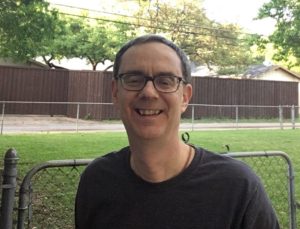Part II: Floating Down the River of De-Nial

You’ll know from Part I that I was in denial. I decided not to accept Dr. Old School’s opinion that I had HHT and would try to figure out the reason for my nosebleeds on my own. I reasoned that if I knew what triggered the nosebleeds, I could change whatever behavior was causing them, and voila – they’d be gone.
So, I started keeping track of every nosebleed: date, time, severity and what I was doing when it occurred. I’ve been doing this since 2007. This type of record keeping is similar to how the Cure HHT tracker app works. I can attest that this kind of record is very helpful for oneself and for one’s doctors. So, if you are not using the app or otherwise keeping track, I very much encourage you to do so.
With that said, did my record keeping resolve my nosebleeds? No. Oh, it did help me avoid some. It especially helped me to know when to seek treatment and to judge the effectiveness of said treatment. Case in point, instead of simply thinking, “It seems like my nosebleeds are getting worse,” I was able to KNOW that they were getting worse. At that point, Dr. Old School recommended me for an embolization. That treatment did help reduce the number of really terrible nosebleeds. And, my record keeping provided the proof of it.
Five years after Dr. Old School first “accused” me of having HHT, I came across a local magazine on the “Best Doctors in Dallas.” I was still floating down that river of denial, but was feeling that the waters had begun to shift. I was still hoping for a way to end my nosebleeds, so I decided to try a different ENT, one that was said to specialize in difficult cases. “Well,” I thought,” I’m a difficult case.” So, I made an appointment.
I went to see (let’s call him) Dr. Big Talk and told him what diagnosis my regular ENT gave me. I think he actually took a step back. He might as well have crossed his fingers as if he was warding off a vampire. He said something like, “If you’re Dr. Old School’s patient, I don’t want to step in.” Dr. Big Talk was no direct help. He was, as you can image, all talk; however, he did put me on the path to better treatment. He did that by recommending a hematologist. We’ll call her Dr. Red.
I had already been tested for clotting, but I went to the hematologist anyway and allowed her technician siphon off about as much blood as might occur in a bad nosebleed. Good thing I didn’t have one at the time!
Thankfully, Dr. Red said my blood was normal. She also said that she heard of doctors at the University of Texas – Southwestern HHT Center of Excellence, who knew about HHT and treated it. That got me interested, and I wanted to find out once and for all if I had it. It seemed as though I was finally shifting from denial to the open waters of acceptance.
I met with Dr. John Battaile (real name!) and told him about my nosebleeds. He said that he could arrange treatment, but the care would be different depending if I had HHT or not, so he referred me to a genetics lab to help me find out if I did.
Coming up: What the geneticist said – sneak peak, it’s not what you think!

HHL Has Done Great Job Dude. Really Interesting article.
Thanks! Somehow I just got notification of your comment today.